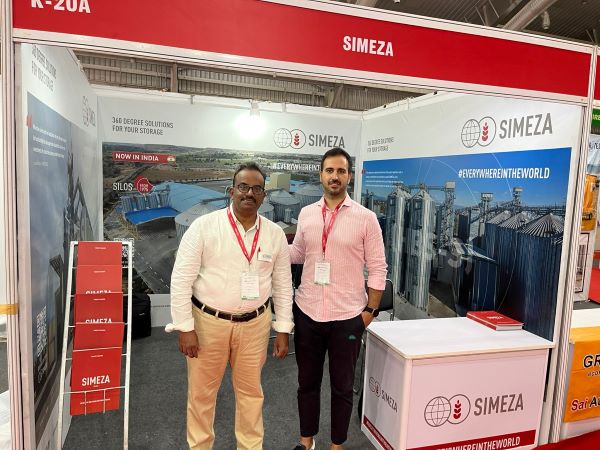In a notable participation, SIMEZA Silos, one of the pioneer Silo companies in Europe marked its presence at the 13th installment of GrainTech India, convened in the vibrant city of Bangalore, India, and attended by influential entities within the grain industry.
The company, which is taking its first steps in India, highlighted the exceptional quality of its products while underscoring the immense potential of the country.
This potential arises from the pressing need to expand grain storage capacities, a critical requirement at the current agritech juncture.
This exposition stands as the largest of its kind in India, with a focus on cereals, spices, oilseeds, as well as advanced feed products and technologies.
The central objective of the firm remains the reduction of food waste while concurrently enhancing the value proposition in the agricultural and forestry sectors.
Over 45 years of experience
The company which has more than 45 years of experience in design, production and installation of SILOS made of galvanized steel sheets for industrial and farm uses, offers a wide range of products that include flat bottom silos, hopper silos, accessories for storage silos, farm silos ad tanks among others.
SIMEZA silos are designed in a modular way so that they can be assembled quickly. This is in addition the high quality materials used in production makes them highly resistant in all types of environments, assuring the conservation of all types of grains.
SIMEZA operates in the 5 continents and 45 countries manufacturing silos for the storage of cereals, flour and other industrial products.
About GrainTech India
GrainTech India is India’s largest technology exhibition for grains, rice, cereals, spices, pulses, biscuits, milling, oilseeds, feeds, storage, processing, packaging, ingredients and allied industries.
In its 13th edition that ended last week, the event provides a platform for participants to showcase products and technologies related to production, storage, distribution, transportation and processing of food grains and other food items.
Generally, the focus is on increasing food exports and serving domestic consumers who are spending more on healthy food products.








